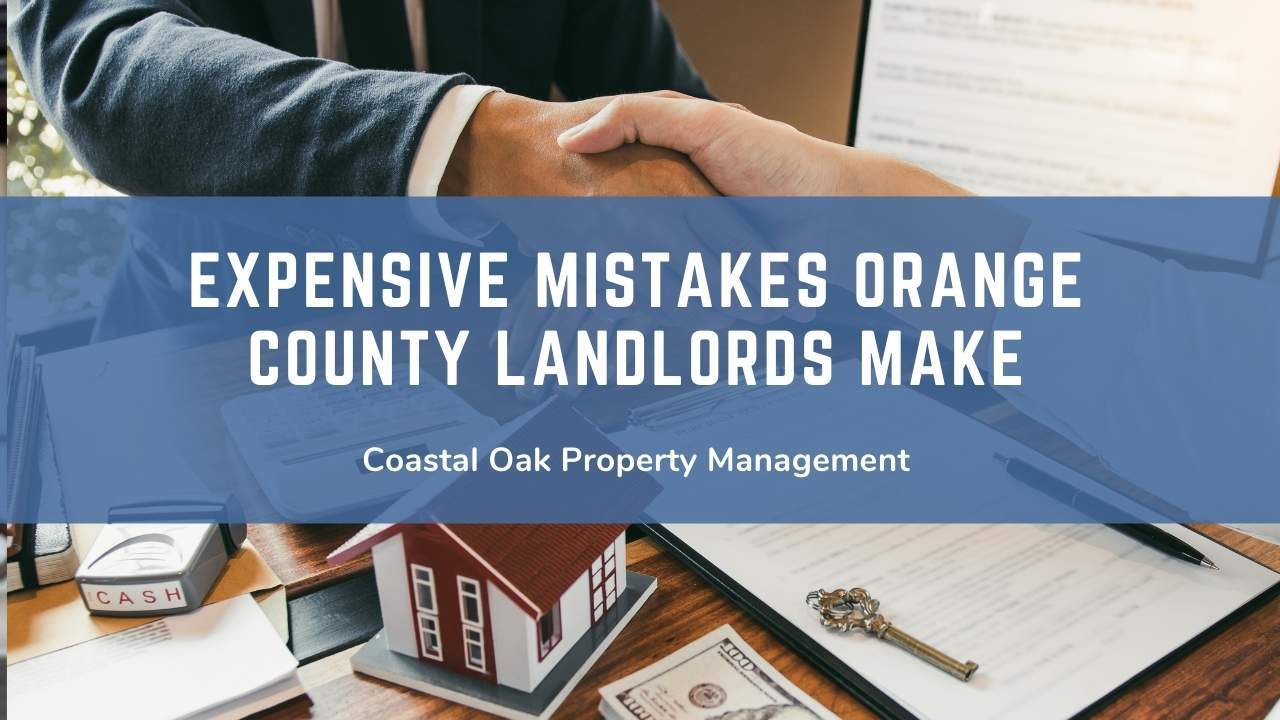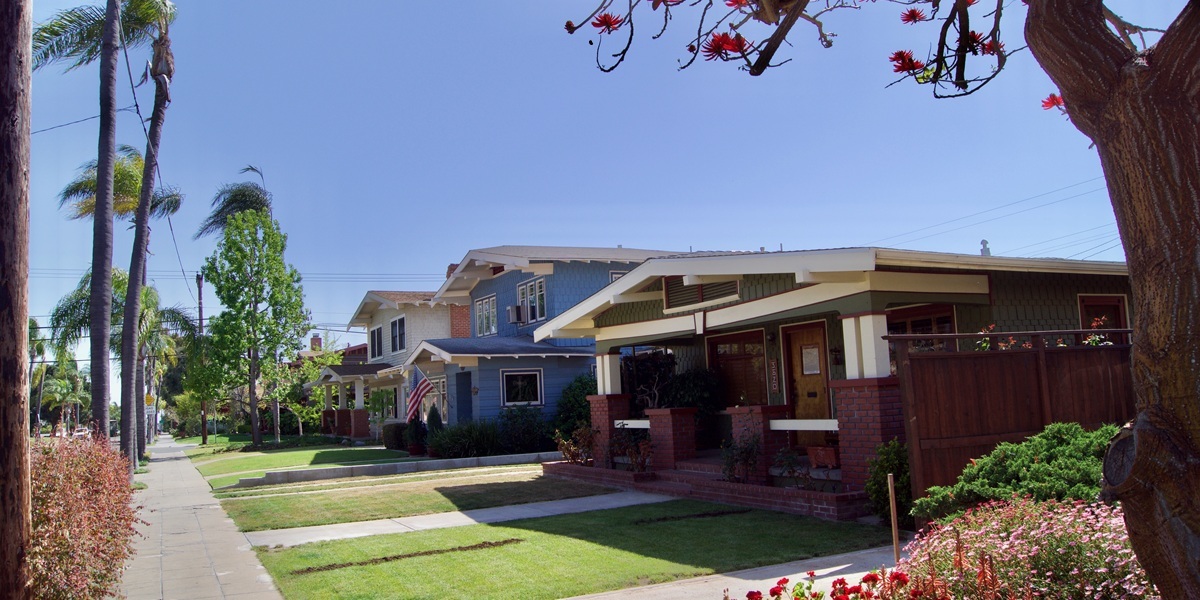5 Common Mistakes Landlords Make in Orange County
By Matthew Martin, Coastal Oak Property Management
As a rental property owner, you already know that real estate can be one of the most powerful tools for building generational wealth. When managed well, it can form the cornerstone of a strong long-term financial plan.
However, even experienced landlords can make costly mistakes that eat away at profits and create unnecessary stress.
In this post, and in the video below, we’ll walk through five common pitfalls that landlords often face and offer practical advice to help you avoid them.
Watch the video: 5 Mistakes Landlords Should Avoid
1. Buying the Wrong Property
This is arguably the most critical mistake a landlord can make. Buying the wrong property can haunt you for years, draining time, money, and energy.
Often, the mistake stems from skipping proper due diligence. It’s easy to fall in love with a property that looks like a great deal or is in a desirable location, but without digging deeper, you may miss red flags.
For example, unexpected repair needs, bad existing tenants, or long-term maintenance issues can all turn a seemingly “perfect” purchase into a headache.
How to avoid it:
Conduct thorough due diligence before and after making an offer. This includes:
-
Researching local demographics and rental trends
-
Reviewing current leases and tenant estoppels
-
Getting a detailed property inspection
-
Reviewing the operating history
-
Creating a multi-year maintenance and renovation budget
It’s always better to walk away from 10 potential deals than to buy one bad one.
2. Skipping Proper Resident Screening
Tenant selection can make or break your investment. A poor tenant can lead to missed rent, property damage, complaints from neighbors, and legal battles.
Unfortunately, some landlords get impatient when a property sits vacant. The temptation to approve the first applicant can lead to problems down the road.
This is one of many reasons landlords hire a property manager to handle screening.
How to avoid it:
Implement a thorough and consistent screening process that includes:
-
Employment and income verification
-
Credit checks
-
Rental history
-
Landlord references
Look beyond the surface of the application. A little extra effort here can save you thousands of dollars and months of frustration later.

3. Neglecting Property Inspections
Many landlords fail to inspect their property regularly, especially when they have a long-term tenant. But this can be risky even with great renters.
Damage or wear and tear can go unnoticed for years. Small issues like mold growth, leaking pipes, or HVAC neglect can grow into major expenses if left unchecked.
How to avoid it:
Schedule regular property inspections, at least during every lease renewal. Even better, inspect annually to ensure everything is being maintained properly. A professional property manager can assist with these inspections, providing detailed reports and identifying issues early.
4. Deferring Maintenance
Deferred maintenance is one of the costliest habits a landlord can develop. While skipping small repairs may seem like a way to save money, those minor issues can grow into major problems.
Think of unpainted fascia boards that eventually rot, or a poorly functioning HVAC system that breaks down entirely due to lack of maintenance. Neglected properties also depreciate faster and are harder to sell down the line.
How to avoid it:
Be proactive. Address repairs promptly and invest in preventative maintenance. Use licensed and experienced contractors who can fix root causes, not just symptoms. This keeps your property in great shape and protects its long-term value.

5. Mishandling Unit Turnovers
Every time a tenant moves out, you lose rental income during the vacancy period. Poorly managed turnovers can lead to weeks or even months of lost revenue.
The key is to minimize downtime and maximize preparedness.
How to avoid it:
Plan your turnovers in advance. As soon as you receive notice from a tenant, start lining up cleaning, maintenance, and marketing tasks. Time is money. For example, if your rent is $3,000 per month, every day your unit sits vacant costs you about $100.
Quick, efficient turnovers can have a major impact on your annual income, and over time, your property’s overall performance.
Work with a Professional to Maximize Your ROI
Managing a rental property doesn’t have to be stressful or overwhelming. At Coastal Oak Property Management, we help landlords across Orange County and Long Beach handle every aspect of property management, from tenant screening and maintenance to inspections and turnovers.
Whether you’re renting out a single-family home you used to live in, or you own a growing portfolio of rental units, our goal is to make your experience as hands-off and profitable as possible.
At Coastal Oak Property Management, we offer a free owner consultation. We’ll learn about your goals and show you how we can help you maximize your investment.
Final Thoughts
Avoiding these five mistakes can dramatically improve your profitability, reduce your stress, and protect the value of your investment over time. Whether you're a new landlord or a seasoned investor, it pays to be proactive, thorough, and well-prepared.
Remember to stay legally compliant, as laws are changing fast in California.
Have you encountered any of these challenges in your own property management journey? Let us know in the comments below. We’d love to hear from you.
And don’t forget to like the video, subscribe to our channel, and stay tuned for more tips on successful property management.











-1.jpeg)

